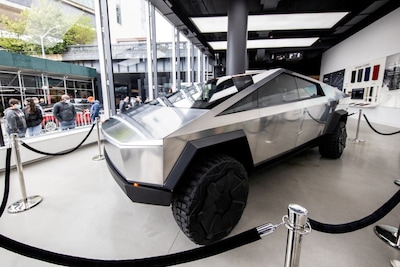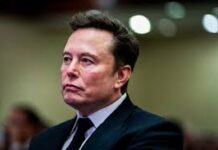Elon Musk: Tesla to Build Robotaxi Vehicle in ‘futuristic-look’
Tesla and Musk have often missed targets to start producing vehicles.
Tesla will build a vehicle dedicated for use as a robotaxi, and it will start making three new vehicles next year, CEO Elon Musk told fans at a party celebrating the opening of a Texas factory.
Musk didn’t give details of the robotaxi other than to say it will “look quite futuristic.” He also said Tesla will start building the Cybertruck pickup at its new factory near Austin, Texas, next year. After that, it will start building a new
Roadster and an electric semi, he said.
He made his remarks Thursday night at the “Cyber Rodeo at Giga Texas,” an invitation-only party for thousands of guests at Tesla’s new billion-dollar-plus factory.
As many as 15,000 people were expected to attend the private event hosted to mark the opening of the new factory in Travis County that also serves as the company’s new headquarters following its move from California.
Musk said at the Thursday night event streamed live on YouTube that Tesla was delivering the first Model Y small SUVs built at the new factory, which he said can make a half million of the SUVs per year.
Tesla and Musk have often missed targets to start producing vehicles. In 2019, he promised a fleet of autonomous robotaxis would be on the road the following year, but the company’s “Full Self-Driving” software is still being tested by selected Tesla owners on public roads.
The company is the largest maker of electric vehicles in the US and the world.
Musk said this year will be about scaling up the Austin factory as well as a new one in Germany. He also said the company may start building a robot in 2023. “Next year there’s going to be a massive wave of new products,” he told the crowd Thursday night.
A county-issued permit said the event included interactive tours, food, alcohol and live entertainment. But the event was off-limits to the general public and the news media.
Musk has said the Austin-area plant will employ up to 10,000 workers.
















